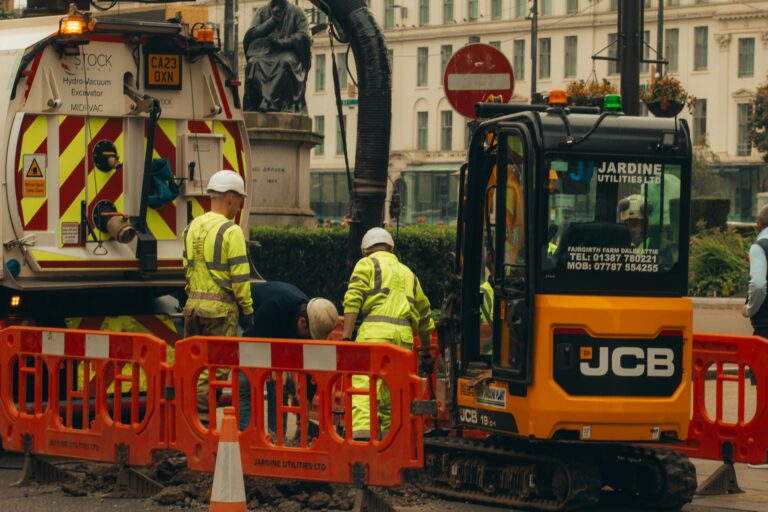Why construction workers won't talk about their mental health
22/08/2025
Mental health challenges are prevalent in the construction industry, yet many workers hesitate to discuss their struggles. This silence can have dire consequences, including prolonged psychological distress and even an increased risk of suicide. In 2025, we cannot leave mental health out of health and safety conversations.
Understanding the reasons behind this widespread reluctance towards talking about mental health is crucial for fostering a supportive and open work environment; once we know the ‘why’, we can tackle the ‘how’. Mental health is the silent risk you need to consider in your health and safety strategy, as the mental strain that comes along with the responsibilities incurred in the construction sector are significant.
High suicide rates in construction
The construction sector has alarmingly high suicide rates. In the UK, construction workers are nearly four times more likely to die by suicide than the general population. Similarly, in the United States, construction workers are six times more likely to die by suicide than from workplace injuries.
These statistics underscore the urgent need to address mental health issues within the industry, since stress is the safety issue you cannot see. Our approach at Vantify overrides pre-existing norms to focus on taking a more people-first, innovative approach to health and safety. This issue in particular demands a proactive approach to ensure each worker is protected by a work environment that safeguards both the mind and the body.
Stigma and cultural barriers
A significant barrier to discussing mental health is the stigma associated with it. In construction – a predominantly male-dominated field, there’s a prevailing culture that equates emotional vulnerability with weakness. Despite a wider societal conversation encouraging the reassessment of the ‘strong and silent’ model of masculinity, harmful stereotypes about how men ‘should’ behave remain.
Unfortunately, this mindset discourages workers from seeking help or even acknowledging their struggles. Research indicates that 78% of construction workers feel uncomfortable talking about mental health, and 77% believe discussing it would make them appear weak.
The transformation of interpersonal dynamics might seem like a task too large for an employer, but when broken down into different parts, we start to realise that company culture trickles downwards. When Facilities and Site Managers are overloaded with disparate systems and behind on time daily, the stress is felt throughout the workforce. The need to invest in a technologically advanced, integrated system is exacerbated by the realisation of how much unnecessary work stress siloed data puts on your workforce. Our contribution here is one we are proud of, as the Vantify Ecosystem improves communication between all elements of your workforce, provides real-time insight and optimises workflow that in turn reduces stress.

Lack of support and training
Another contributing factor is the insufficient mental health support and training within the industry. According to research highlighted by The HR Director (2023), approximately 72% of construction firms lack a dedicated mental health policy, and over 70% of managers are unsure of how to support struggling staff members. This lack of guidance leaves workers without the necessary resources to address their mental health concerns.
Mental health can be intimidating to bring up, but it is more important than ever to make a start. Irrespective of the size of your business, you want to stay proactive rather than get trapped in a cycle of reactivity regarding health and safety matters. That is why our integrated ecosystem is designed to provide you with a cohesive journey where you are in control and can more effectively optimise workflow while communicating with different parts of the business. The right tools are a starting point, but in terms of the overarching issue, it is imperative to create an environment where mental health is openly discussed to truly begin combatting this growing problem.
Encouraging open conversations and reducing stigma can empower workers to seek help and improve overall mental health within the industry. You could start by implementing comprehensive mental health policies, providing training for managers, and fostering a culture that values emotional well-being.
Conclusion
The reluctance of construction workers to discuss their mental health is a multifaceted issue rooted in stigma, cultural norms, and lack of support. By addressing these factors, the industry can take significant steps toward creating a healthier and more supportive environment for its workforce.
At Vantify, we understand that changing workplace culture starts with awareness and education and we support organisations in building safer, healthier workplaces across the entire risk ecosystem. Construction workers’ mental health problems deserve to be addressed in all areas – starting with the root cause and ending with improved mental health being reported in the coming years. People are at the heart of health and safety but they also sustain your business, so investing in the wellbeing of your people is always imperative, and these conversations must take precedence if we are to help make a difference.
To learn more about how Vantify can help your company protect the wellbeing of your workforce, contact us today.
